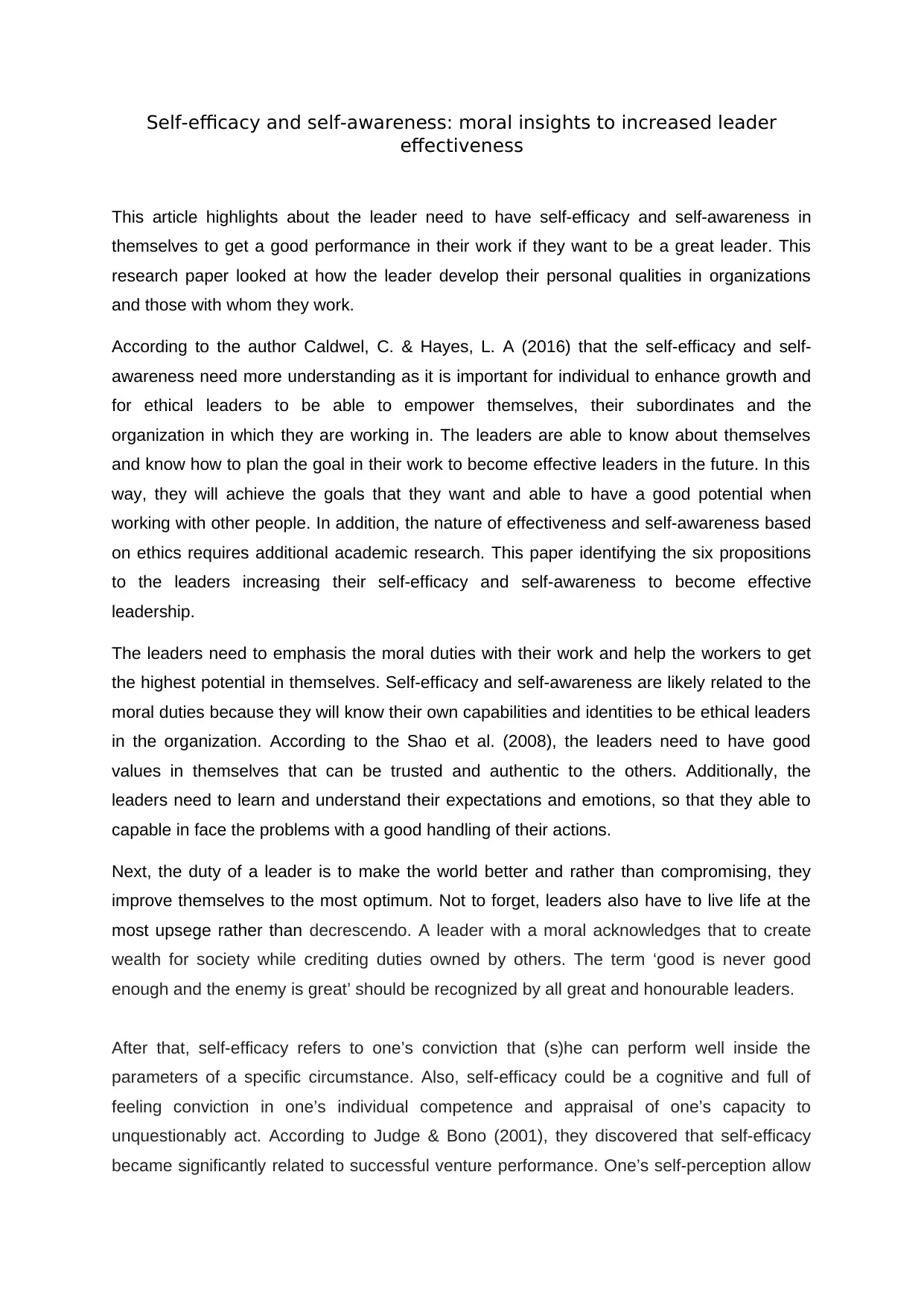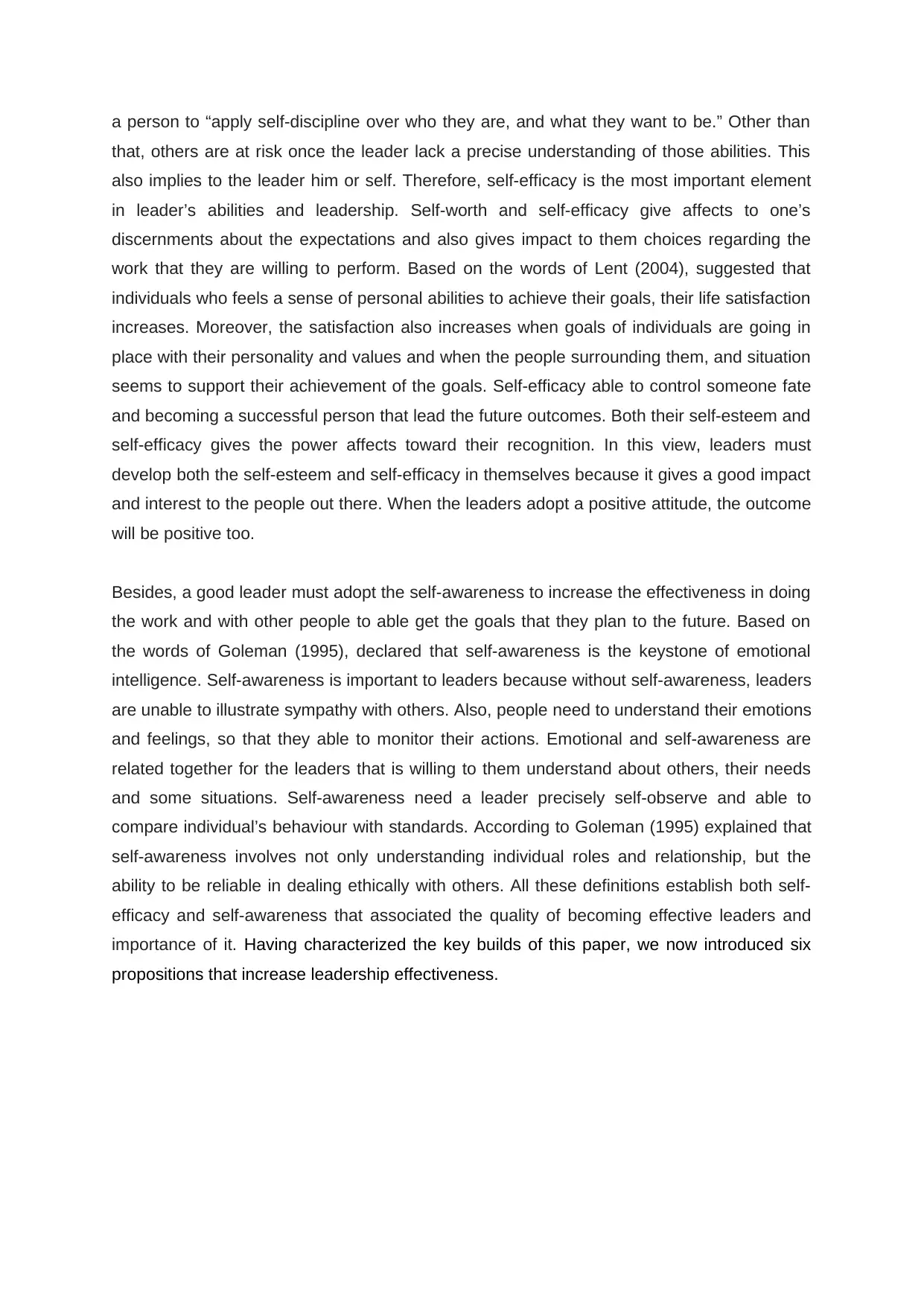Increasing Leader Effectiveness Through Self-Efficacy and Awareness
VerifiedAdded on 2021/11/18
|2
|919
|71
Essay
AI Summary
This essay delves into the crucial role of self-efficacy and self-awareness in enhancing leadership effectiveness. The paper emphasizes that leaders need to develop these qualities to achieve good performance and empower themselves, their subordinates, and their organizations. It explores the importance of self-efficacy as a cognitive conviction in one’s competence and self-awareness as the keystone of emotional intelligence, highlighting how these traits contribute to ethical leadership, goal achievement, and positive outcomes. The essay identifies six propositions for leaders to increase their self-efficacy and self-awareness, emphasizing moral duties, emotional intelligence, and the impact on individual and organizational success. The study references key research and provides insights into how leaders can foster a positive attitude, manage emotions, and create wealth for society, ultimately increasing their effectiveness.
1 out of 2








![[object Object]](/_next/static/media/star-bottom.7253800d.svg)